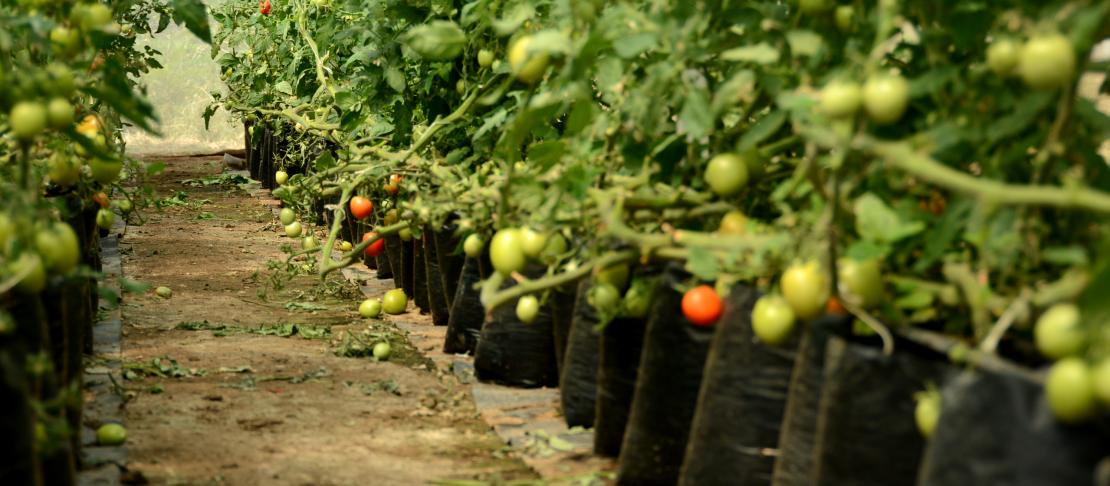Scaling up climate-smart agriculture through private sector engagement

Leading agri-business companies launch Action Plan to strengthen climate resilience
Opinion
Sonja Vermeulen: How Science Can Inform Business Climate Commitments Business Fights Poverty Blog
One of the heavyweights at COP21 in Paris is the World Business Council on Sustainable Development (WBCSD), which came together around the 1992 Rio Earth Summit, as a CEO-led membership group of 200 companies determined to make business more sustainable for people and planet, not just profit. In the lead up to Paris, WBCSD has been orchestrating ambitious private sector commitments to emissions reductions, across sectors from concrete to freight, under its new Low Carbon Technology Partnerships initiative (LCTPi).
The companies commit to contributing to global food security by making 50% more nutritious food available by 2030
With agriculture and food supply chains responsible for upwards of a quarter of global emissions, many are looking for bold action by food and beverage companies. Paris this week provided the opportunity for the announcement of Action Plan for climate-smart agriculture. The Action Plan aims to reduce greenhouse gas emissions from agriculture and land use by 50% by 2030 – a big ask that requires zero deforestation as well as action on food waste. Climate-smart agriculture is also the only one of the nine sectors in the LCTPi that goes beyond mitigation to tackle adaptation and future food security. The companies commit to contributing to global food security by making 50% more nutritious food available by 2030. A third ambition is to strengthen the climate resilience of agricultural landscapes and farming communities through agroecological approaches globally. This is not charity. WBCSD members recognise the strong business case for building adaptive capacity among the smallholders who make up 80% of farmers around the world and supply much of these companies’ inputs of key agricultural products like potatoes, cocoa and cotton.
CCAFS has partnered with WBCSD to provide scientific advice to develop the Action Plan, and will stay on as a critical friend as the member companies roll out the plan. Speaking at the launch event at COP21, Dr Sonja Vermeulen, CCAFS Head of Research said, “As researchers we plan to help companies set and meet meaningful targets – not just for emissions reductions, but also for improving smallholder livelihoods and resilience.” Dr Vermeulen, along with other panellists, noted the huge opportunities for closer collaboration among the private sector, government agencies, farmer organizations, and the research community in implementing climate-smart agriculture (CSA) at scale.
The CSA Working Group of WBCSD is chaired by PepsiCo, Monsanto, Olam and Kellogg, among others, and also includes other leading companies as its members including Banamex, Coca-Cola, Diageo, Du Pont, PwC, Starbucks, Tyson Foods, Unilever, Walmart and Yara International, with collective revenues of over USD 800 billion. Member companies realise the urgent need to implement and scale up CSA, to address the multiple challenges faced by the agriculture sector. Sunny Verghese, CEO and co-founder of Olam, said, “As the CEO of a leading agribusiness, I have seen climate change rise up the risk register faster than I ever believed possible. And while large-scale farmers and processors such as ourselves are already putting CSA measures in place, it is the world’s millions of smallholders providing our daily coffee, cotton and chocolate fix that we have to reach, teach and support. We urge the agri industry and their customers to unite behind the WBSCD CSA framework to help scale the understanding and adoption of climate-smart practices by rural communities.”
The WBCSD CSA Action Plan is based on dialogue with multiple stakeholders in Africa, Asia, North America and South America, and takes into account regional priorities and issues. Earlier this year, as part of the regional dialogue in India, CCAFS organized a field visit for private sector participants to the Climate-Smart Village in Karnal, India, where participants had the opportunity to learn about key issues as well as actions being adopted at the farm level.
Based on this consultative approach, the implementation of the Action Plan is focused on four priority action areas:
Building smallholder resilience
Scaling-up investment in CSA
Improving businesses’ ability to trace, measure and monitor CSA progress
Implementing agriculture-driven zero deforestation and sustainable land-use commitments
CCAFS co-chairs Action Area 3, ‘Improving businesses' ability to trace, measure and monitor CSA progress’ which identifies opportunities for targeted action as well as measuring and monitoring CSA progress at the company level as well as contributions to the global ambitions. In this role, CCAFS aims to link the cutting edge metrics for CSA measurement being developed by the research community to private sector needs.
CCAFS and CGIAR approach to engagement with the private sector aims to generate positive impacts for smallholder farmers. Dr Alain Vidal, Director of Strategic Partnerships at the CGIAR Consortium, said, “Private sector has a major role in achieving impact at scale, and the CGIAR recognizes this. In recent years, our engagement with the private sector has grown, and we will continue to develop innovative partnerships under the new CGIAR Strategic Results Framework”.
While the launch of the Action Plan marks an important first step for the private sector, and for CGIAR-CCAFS engagement with the private sector, the focus now needs to be on sound implementation to achieve scale over time.
Dhanush Dinesh is the Global Policy Engagement Manager at CCAFS.
